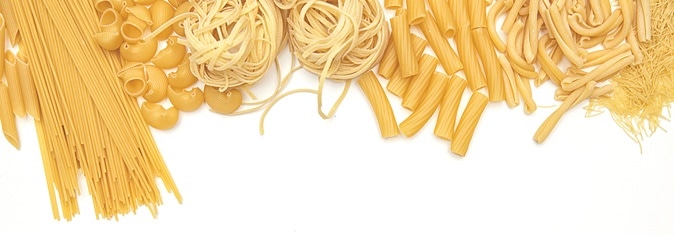
Pasta and other foods rich in carbohydrates have long been removed from weight loss diets. According to a new study from researchers at the University of Toronto, pasta could actually be a valid component of a dieting routine.
The study titled, “Effect of pasta in the context of low-glycaemic index dietary patterns on body weight and markers of adiposity: a systematic review and meta-analysis of randomised controlled trials in adults,” is published in the prestigious British Medical Journal in their latest issue.
Glycemic index (GI) of food denotes a measure of how rapidly the food’s carbohydrates are broken down into simple sugars within the body. Foods with a low GI are known to be beneficial for people trying to lose weight as well as those who are trying to keep their blood sugars in control. Foods rich in fibres such as whole grains are known to have low GI which make them better choices for people with diabetes compared to refined sugars and flours. The new study finds that pasta has a low GI which makes it a better food choice in weight watchers.
The team of researchers were trying to evaluate if pasta, like other foods rich in carbohydrates, could help lose weight and maintain it. They gathered information from 32 different trials including 2448 participants and found that in people who ate pasta as part of their low-carbohydrate diet, there was a significant (average of less than 2 pounds) weight loss and maintenance of the weight. Pasta in these participants was part of a low GI diet.
They analysed the data collected from these studies to see if pasta can affect the attempts of weight loss in the participants. According to Dr. John Sievenpiper, study author, no harm or weight gain was seen with pasta consumption. Contrarily some weight loss was noted to pasta consumption. The researchers warn however that the quantity of pasta that could be conducive to weight loss has not been determined yet and it is too early to ask people to go on a pasta diet for weight loss.
Among the study population, only one third was consuming pasta and that too an average of 3.3 servings (at 1/2 cup per serving) per week. This amount is far less than a single plate of pasta served at a restaurant they warn. Sievenpiper said, “I wouldn't want someone to take away that pasta doesn't cause weight gain…If you consume too much pasta, it will be like if you consume too much of anything.” Moderation still remains the key he said. The authors thus write in their concluding remarks, “Pasta in the context of low-GI dietary patterns does not adversely affect adiposity and even reduces body weight and BMI compared with higher-GI dietary patterns.”
The team also adds that the low GI food that the participants were having was one of the major reasons for the weight loss that they observed. More studies and research is necessary to show how low GI foods can lead to weight loss and maintenance of healthy body weight, explain the researchers. A healthier eating option would be a Mediterranean diet, they said which could include pasta.